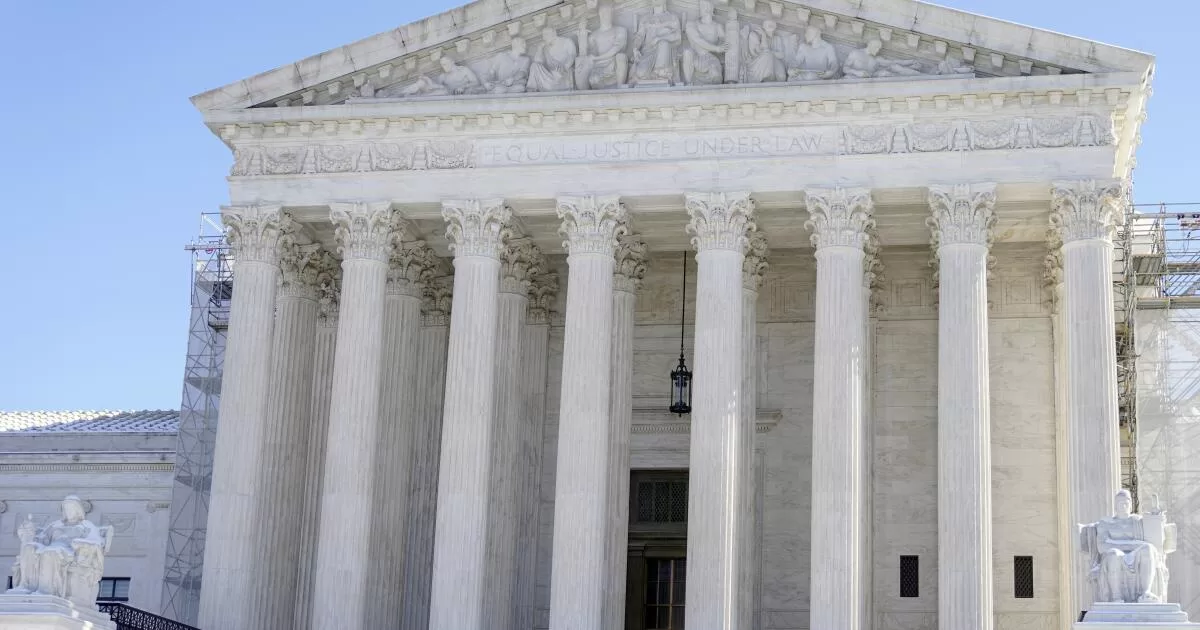In a filing filled with vivid descriptions of the Jan. 6, 2021, violence at the Capitol, the lawyers urged the justices not to flinch from doing their constitutional duty and to uphold a first-of-its-kind Colorado court decision to kick the 2024 Republican presidential front-runner off the state’s primary ballot.
“Nobody, not even a former President, is above the law,” the lawyers wrote.
The court will hear arguments in less than two weeks in a case that has the potential to disrupt the 2024 presidential election.
The case presents the high court with its first look at a provision of the 14th Amendment that bars some people who “engaged in insurrection” from holding public office. The amendment was adopted in 1868, following the Civil War.
In their plea to the court, the lawyers said, “Trump intentionally organized and incited a violent mob to attack the United States Capitol in a desperate effort to prevent the counting of electoral votes cast against him” after he lost the election to Democrat Joe Biden.
They called for a decision that makes clear that what happened on Jan. 6 was an insurrection, for which Trump bears responsibility. The president is covered by the constitutional provision at issue, and Congress doesn’t need to take action before states can apply it, the lawyers wrote.
The written filing includes details of Trump’s actions leading up to Jan. 6, including a Dec. 19, 2020, tweet in which he informed followers of the planned protest on the day Congress would count the electoral votes and wrote, “Be there, will be wild.”
In his speech to supporters on Jan. 6, the lawyers wrote, “Trump lit the fuse.” The brief reproduces photographs of the mayhem from that day, including one of U.S. Capitol Police Officer Daniel Hodges pinned in a doorway.
Trump’s lawyers have argued that efforts to keep him off the ballot “threaten to disenfranchise tens of millions of Americans and … promise to unleash chaos and bedlam” if other states follow Colorado’s lead.
The Colorado Supreme Court’s 4-3 ruling should be reversed for any of several reasons, Trump’s lawyers wrote, including that he did not engage in insurrection and that the presidency is not covered by the amendment. They also contend that Congress would have to enact legislation before states could invoke the provision to keep candidates off the ballot.
The justices will hear arguments Feb. 8.
Trump has won the first two GOP presidential contests: the Iowa caucuses and the New Hampshire primary. Former U.N. Ambassador Nikki Haley is his sole significant GOP opponent.
Both sides in the case have said the court needs to act quickly so that voters know whether Trump is eligible to hold the presidency.
The court is dealing with the dispute under a compressed time frame that could produce a decision before March 5, Super Tuesday, when the largest number of delegates in a day is up for grabs, including in Colorado.
A two-sentence provision in Section 3 of the 14th Amendment states that anyone who swore an oath to uphold the Constitution and then “engaged in insurrection” against it is no longer eligible for state or federal office. After Congress passed an amnesty for most of the former confederates the measure targeted in 1872, the provision fell into disuse until dozens of suits were filed to keep Trump off the ballot this year. Only the one in Colorado was successful.
Trump is separately appealing in state court a ruling by Maine’s Democratic secretary of state, Shenna Bellows, that he is ineligible to appear on the ballot over his role in the Capitol attack. Both the Colorado Supreme Court and the Maine secretary of state’s rulings are on hold until the appeals play out.
Sherman writes for the Associated Press.
